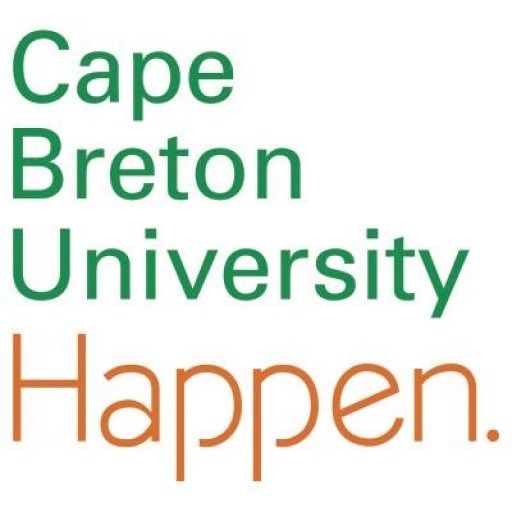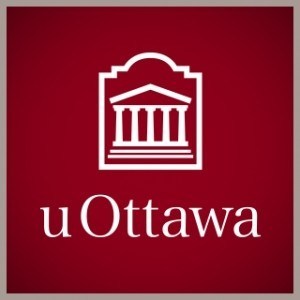Photos of university / #cbuniversity
Students interested in concentrating in Anthropology and/or Sociology can find out more about the program requirements by consulting the department chair or the relevant section of the University's web site. Students majoring in Anthropology and/or Sociology must consult annually with the department hair before choosing their courses for the coming year.Sociology and Anthropology are separate but overlapping disciplines. This unity in difference creates a special opportunity to students choosing fields of concentration in the BA. Both Anthropology and Sociology are considered teachable subjects by the Nova Scotia Department of Education. A student may study Anthropology as one separate field and Sociology as another separate discipline, or a student may combine Anthropology and Sociology and use them as one field. Courses which are labelled AN/S may be counted as either Anthropology or Sociology in the BA degree where either of these is used as a separate discipline for concentration and the same is true for teachables.
Field of study: Anthropology, Sociology
The Bachelor of Arts in Anthropology and Sociology at Cape Breton University offers students a comprehensive understanding of human societies, cultures, and social behaviors across time and regions. This interdisciplinary program is designed to equip students with critical thinking, analytical skills, and a deep appreciation for the diversity of human experiences. Through a combination of theory, research methods, and practical applications, students explore the complex relationships that shape societies and individuals. The program covers core areas such as cultural anthropology, social sociology, ethnography, and contemporary social issues, providing students with a well-rounded foundation in both disciplines.
Students will engage in coursework that examines the cultural practices, social structures, and historical developments of different communities worldwide. Emphasis is placed on understanding how social phenomena influence individual identities and community dynamics, while also addressing pressing contemporary issues such as globalization, social justice, inequality, and human rights. The curriculum includes opportunities for hands-on learning through research projects, fieldwork, and community engagement initiatives, giving students practical experience to complement their academic studies.
The program aims to develop strong research competencies, including data collection, analysis, and reporting skills. Students are encouraged to critically evaluate diverse perspectives and to consider ethical considerations in research involving human subjects. Graduates of the Bachelor of Arts in Anthropology and Sociology will be well-prepared for careers in research, community development, social services, education, policy analysis, and further academic pursuits. The program also fosters intercultural sensitivity and communication skills essential for working in diverse and globalized environments. Throughout their studies, students benefit from supportive faculty expertise and the university’s commitment to experiential learning, ensuring they are equipped with both theoretical knowledge and practical skills to address real-world social challenges.
Program Requirements for Bachelor of Arts in Anthropology and Sociology at Cape Breton University:
To successfully complete the Bachelor of Arts in Anthropology and Sociology program, students must fulfill a set of core and elective course requirements totaling a minimum of 120 credit hours. The degree is structured to provide students with a comprehensive understanding of human societies, cultures, social behaviors, and societal structures through a combination of theoretical coursework and practical applications.
Students are typically required to complete foundational courses in both Anthropology and Sociology in their first and second years. These introductory courses include, but are not limited to, Introduction to Anthropology, Introduction to Sociology, and Cultural Anthropology. Following the foundational courses, students are encouraged to select specialized courses such as Anthropology of Indigenous Peoples, Urban Sociology, Social Inequality, and Applied Anthropology, which allow them to explore specific interests within the fields.
In addition to discipline-specific courses, students must complete general education requirements that bolster their critical thinking, research, and communication skills. These general education courses often include Writing and Communication, Mathematics, and electives in the Humanities and Sciences.
Research methodology is a critical component of the program, and students are required to take courses in Research Methods in Anthropology and Sociology. These courses train students in qualitative and quantitative research techniques, data analysis, and ethical considerations in research involving human subjects.
A capstone project or thesis is typically required in the final year, providing students with an opportunity to apply their knowledge, conduct independent research, and demonstrate their analytical skills. Students must also maintain a certain GPA, usually around 2.0 or higher, to proceed to advanced coursework and to graduate.
Fieldwork and experiential learning opportunities, such as internships or community projects, are strongly encouraged and sometimes required, as they help students gain practical experience and professional skills that are valuable in various careers.
Overall, the program aims to produce graduates who possess a broad understanding of social and cultural dynamics, are equipped with strong research and analytical skills, and are prepared for careers in community development, social services, research, education, or further academic pursuits.
The financing options for the Anthropology and Sociology undergraduate program at Cape Breton University are designed to support students through various financial aid opportunities. Students are encouraged to explore several avenues of funding, including government-funded grants and loans, scholarships, bursaries, and external funding sources. The Government of Canada and the Nova Scotia provincial government provide student loan programs that can cover tuition fees, living expenses, and educational supplies. Eligibility criteria and application procedures are detailed on the respective government websites and must be completed annually to maintain funding eligibility.
In addition to government assistance, Cape Breton University offers a range of scholarships and bursaries specifically for undergraduate students. These financial awards are typically merit-based, need-based, or a combination of both, and can significantly reduce the financial burden of higher education. Some scholarships are automatically considered during the admissions process, while others require separate applications. Students are advised to regularly check the university’s financial aid office and dedicated scholarships webpage for updated opportunities and deadlines.
External funding sources also play an important role in financing studies at Cape Breton University. Students may seek private scholarships, employer-sponsored education assistance programs, or community-based bursaries. Many organizations recognize the importance of supporting students in fields like Anthropology and Sociology, given their relevance to community development, cultural understanding, and social sciences. Applicants should consult relevant external bodies early in their academic planning to maximize their financial support options.
Cape Breton University additionally provides work-study opportunities and part-time employment options that enable students to earn while they learn. Employment on campus or through approved off-campus arrangements can help offset educational costs and provide valuable professional experience related to their field of study. The university’s career services and student employment office provide resources and guidance on securing such opportunities.
For international students, financing options are slightly different and may include international student scholarships, external bursaries, and private funding sources. These students are encouraged to contact the university’s international office to receive tailored advice and assistance in exploring available funding options.
Overall, students enrolled in the Anthropology and Sociology program at Cape Breton University are supported by a comprehensive financial aid framework that includes government assistance, institutional awards, external scholarships, work opportunities, and personalized financial planning advice to facilitate successful completion of their degree without undue financial hardship.
The Bachelor of Arts in Anthropology and Sociology at Cape Breton University offers students a comprehensive understanding of human cultures, social structures, and societal issues. The program is designed to provide a multidisciplinary approach, combining anthropological perspectives on human behavior, cultural diversity, and societal organization with sociological theories related to social institutions, change, and development. Students will explore a wide range of topics, including indigenous studies, social justice, globalization, and community development, gaining both theoretical knowledge and practical skills applicable to careers in research, community work, policy analysis, and education. The curriculum emphasizes critical thinking, research methodologies, and fieldwork, preparing graduates to analyze complex social phenomena and contribute effectively to social progress. Throughout the program, students are encouraged to engage with diverse communities and apply their learning to real-world contexts, fostering a deeper appreciation of cultural diversity and social responsibility. The program typically includes coursework, research projects, and experiential learning opportunities, and may offer options for specialization such as Indigenous Studies, Globalization, or Social Policy. Graduates will emerge with a broad understanding of social sciences, equipped to pursue further education or enter various sectors including government, non-profit organizations, or private enterprise. The program’s goal is to develop socially conscious individuals capable of critical analysis and empathetic engagement with societal issues.




